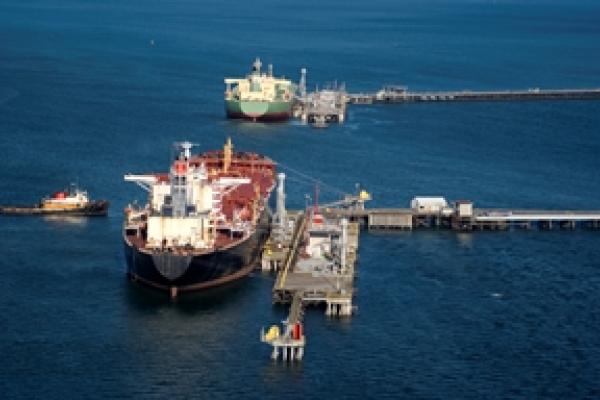
Juan Zaplana
Published: July 01, 2013

Standard Chartered Bank (SCB) v Dorchester LNG (2) Limited (The "Erin Schulte”) [2013] EWHC 808 (Comm)
The Facts: The Contracts and Letters of Credit
United Infrastructure Development Corporation (“UIDC”) and Cirrus Oil Services Ltd (“Cirrus”) entered into a sale contract pursuant to which UIDC agreed to sell Cirrus 18,000 mt of gasoil. The cargo was intended to be used for the mining industry which required a specific quality. The gasoil was sourced by Gunvor to UIDC under a different sale contract and both contracts of sale stipulated for the opening of letters of credits.
A letter of credit was opened by United Bank of Africa (“UBA”) in favour of UIDC on the application of Cirrus. This letter of credit was governed by UCP 600 and was confirmed by SCB to UIDC. The letter of credit was transferred to Gunvor and therefore Gunvor became the beneficiary of the letter of credit. Societe Generale acted as the agent of Gunvor for the purpose of drawing under the transfer letter of credit.

The bills of lading recorded that the shipper was Gunvor and the receiver “to the order of Societe Generale, Paris”.
The cargo was loaded on board the vessels “Maria E” and the “Erin Schulte” at Cotonou, Benin. On arrival at the discharge port of Takoradi, Ghana, Cirrus and UIDC rejected the cargo loaded on board both vessels as the gasoil was not of the required quality. Cirrus agreed to purchase the cargo on board the “Maria E” at a reduced price. As a consequence of the quality issue, UBA notified SCB of an amendment to the letter of credit reducing the value and quantity of the cargo covered by the letter of credit in relation to the cargo on board the “Maria E”. UIDC and SCB agreed to the amendment and prematurely confirmed to UBA Gunvor’s agreement. Gunvor however rejected the amendment and presented documents under the original letter of credit and SCB paid Gunvor in respect of the cargo on board the “Maria E”.
The cargo on board the “Erin Schulte” was not accepted at a reduced price by Cirrus. UIDC advised Gunvor that two new buyers had been found in the market for the cargo on board the “Erin Schulte” and new letters of credits were opened in favour of UIDC, one by SCB and another by Trust Bank Ghana. UIDC requested SCB to transfer the letter of credit to Gunvor. Nevertheless, the transfer never happened as Gunvor presented the original letter of credit in relation to the cargo on board the “Erin Schulte”. The documents presented comprise the bills of lading in respect of the cargo on board the “Erin Schulte” which had been indorsed in favour of SCB. The documents were received and sent to SCB’s service centre for checking.
The cargo on board the “Erin Schulte” was discharged on the instructions of Gunvor by production of letters of indemnity and not against the production of a bill of lading to the “new” receivers without the approval of SCB.
As a consequence of the non-acceptance of the amendment by Gunvor, UIDC was paid by the “new” buyers. UIDC was the beneficiary resulting from SCB’s error in notifying UBA of the agreement to the amendment to the letter of credit without having obtained Gunvor’s acceptance and SCB had to pay Gunvor with no right of recourse from UBA.
The bills of lading were indorsed to SCB and the question raised was whether SCB could recover from the shipowner its loss caused by the delivery of the cargo without the consent of SCB on the basis that SCB was the lawful holder of the bills of lading. SCB honoured the letter of credit and then did not have any recourse to or possession of the cargo.
The claimant, SCB, sued the defendant shipowner for damages for the misdelivery and/or conversion by the shipowner of a cargo of gasoil shipped on board the vessel “Erin Schulte”. Gunvor took over control of the defence on behalf of the shipowner.
The Judgment
The court had to look at the question of which party has title to sue under 5(2) COGSA 1992 as the lawful holder of the bills of lading when the bills have been indorsed.
Section 5(2)(b) of COGSA 1992 provides:
"References in this Act to the holder of a bill of lading are references to any of the following persons, that is to say-
[…]
(b) a person with possession of the bill as a result of the completion, by delivery of the bill, of any indorsement of the bill or, in the case of a bearer bill, of any other transfer of the bill…."
In essence, any party with possession of the bill of lading, either by being identified in the bill or by indorsement, can be defined as holder of a bill of lading within the meaning of section 5(2) of COGSA 1992. If SCB was such a party as per section 2(1) of COGSA 1992, all rights of suit under the contract of carriage would have been transferred to SCB.
The judgment gives clarification to the position of a financing bank and the issue of whether the bank can be considered as the lawful holder of the bill of lading when receiving the bills of lading within the context of a letter of credit transaction. Following the decision of Aegean Sea Traders Corporation v Repsol Petroleo SA (The “Aegean Sea”) [1998] 2 Lloyd’s Rep 39 which clarified that an indorsement of bills of lading is a bilateral act requiring possession and acceptance; the decision examines the transmission of bills of lading and the requirements of acceptance when bills of ladings are indorsed.
The shipowners alleged that SCB, having received the bills of lading as a part of a presentation under a letter of credit, did not accept them until it had determined that the seller’s documentary presentation was compliant and had paid him. In other words, the shipowner contended that until the credit is honoured, possession of the document is conditional in nature and denied that the financing bank was the holder of the bill of lading.
The judge dismissed the allegations of the shipowners and drew a parallel between the present case and East West Corporation v DKBS [2003] 1 Lloyd’s Rep 239. In that case the issue at stake was whether the shipper of the goods was entitled to sue the shipowner for having discharged and delivered the cargo without the production of the bills of lading as required by COGSA 1992. The bills were made to the order of certain Chilean banks and remitted to them to allow the banks to release the bills to the buyers on payment of the cargo value. The court held that the Chilean banks were the holders of the bills of lading within the meaning of section 5(2). In the present matter, SCB held the bills of lading to the order of Guvnor and, according to the court, SCB had title to sue the shipowner pursuant to sections 2(1) and 5(2)(b) of COGSA 1992.
The court held that the financing bank, when receiving bills of lading within the context of a documentary credit, is to be considered a lawful holder of the bill of lading within the meaning of COGSA 1992.
The decision reminds us that by discharging and delivering the goods without production of the bill of lading, the shipowner committed a breach of the contract of carriage contained in or evidenced by the bill of lading. The financing bank could implement its security before the passing of title under COGSA 1992 by obtaining delivery of the goods and, if necessary, selling them. The sale could not be a conversion as against the shipper for it was the shipper who, by indorsing the bills of lading in favour of the bank, pledged the goods in favour of the bank and thereby created its security interest.


